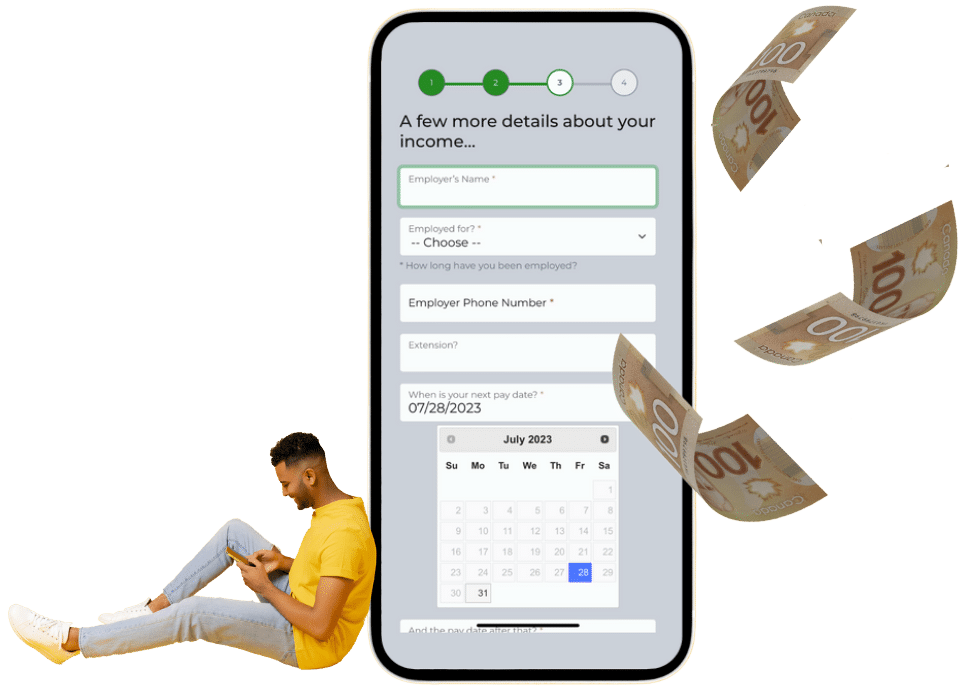Overview
Inflation is the rate of increase in the price of goods and services, which corresponds to a decrease in the purchasing power of money. Canada has been experiencing high inflation in recent years, with food and housing costs undergoing some of the biggest upward surges.
Causes
Inflation is the result of a complex interplay of factors, including the following:
- Disruptions in the supply chain
- The demand for goods and services outpaces the supply
- Shortages of various products and services
While there are many causes of inflation, we as individuals have little influence over these powerful forces. We must combat the effects of inflation at the granular level of our daily financial life.
Surviving Inflation
Here are 10 tips to survive the pervasive impact of inflation in Canada:
Tip #1: Reassess Your Spending
Review your budget and see whether you can eliminate any frivolous expenditures. These may include buying coffee at large coffee chains or going out to eat. You can use budgeting apps or more traditional methods such as the envelope budgeting technique whereby you label various envelopes with the corresponding spending categories and are only allowed to spend the cash in that envelope for that category that month. (See tip #10 for additional budgeting techniques.) If you cannot find any expenses you can cut, you might want to consider ways to increase your income.
Tip #2: Increase Your Income
It will likely be difficult to cover your expenses with a low income. That’s why it’s imperative to strive for a higher income. There are multiple possible ways to achieve better pay: by obtaining a higher-paying job, earning a raise or a promotion at your current place of employment, or starting a side hustle. You might want to consider learning new skills online by attending online bootcamps and online courses or watching video tutorials, often for a small fee or even for free! Skills like software engineering tend to be in high demand and offer high compensation.
Tip #3: Invest
If you don’t invest any of your money, your savings will deteriorate in value over time due to inflation. Investments can grow over time due to compound interest. For everyday investors, index funds such as the S&P 500 likely offer the best return on investment in the long run. Speculative investing carries high risk while investing in index funds can help you grow your savings and investments in the years leading up to retirement and beyond due to long-term market growth. In simple terms, index funds offer a hands-off approach to investing, whereby your investments track the performance of the respective index. For example, your investments in the S&P 500 will mirror the growth of the 500 largest publicly traded companies in the U.S., which are likely to include companies like Apple Inc., the Microsoft Corporation, Amazon.com, Inc., and others.
Tip #4: Build an Emergency Fund
Start putting aside some money on a regular basis. Even $20 saved per week would result in $1,000 saved in 50 weeks. Don’t let your savings just sit in your bank account. Otherwise, the value of your money will diminish over time due to inflation. Instead, invest the money as described in tip #3. This is key to sustainable long-term financial growth. Research your investment options as well. For example, the Tax-Free Savings Account (TFSA) allows penalty-free withdrawals of your money in case of needed expenditures, while a Self-Directed Retirement Savings Plan (SDRSP) may tax your cash withdrawals.
Tip #5: Increase Your Financial Literacy
Read financial books and articles. Nowadays there is no lack of financial resources online and no shortage of opportunities to improve your financial literacy. You can also take online courses at places like the Khan Academy, Udemy, and Coursera. Learn the basic financial concepts like budgeting, saving, investing, debt management, and taxes. In addition, you may want to stay on top of financial news via channels like CNBC, Bloomberg, or Reuters and subscribe to personal finance newsletters or podcasts of your choosing. Over time, as you digest new information and reflect upon your mistakes and successes, you can develop your financial literacy to a much higher level.
Tip #6: Pay Down Your Debt
You can pay down your debt using the avalanche method or the snowball method. The snowball method involves paying your smallest debt first, followed by your larger debts. The avalanche method has you start with your highest-interest debt, followed by lower-interest debts. No matter which debt repayment strategy you choose, consistency and accountability will be key to your success. If you stick with the plan and see progress, you are more likely to reach the ultimate goal of paying off your debt and increasing your financial wellbeing.
Tip #7: Practice Self-Compassion
On your financial journey, it’s important to practice patience and self-compassion. We are living in challenging economic times. Many people are struggling to keep up with expenses due to a high cost of living and stagnant wages, so cut yourself some slack. Celebrate small victories on your way to financial improvement. If you pay off a longstanding debt, pat yourself on the back. You’ve made another step toward improving your financial situation. Staying motivated is a key factor in your financial journey.
Tip #8: Speak with a Financial Counsellor
You might benefit from speaking with a financial counsellor. Come prepared with a clear understanding of your financial situation and the questions you’d like help with, such as establishing better budgeting habits or saving for the future. A professional may be able to give you a new perspective on your situation and provide you with much-needed encouragement to achieve your goals.
Tip #9: Sell Stuff You Don’t Need
You can sell stuff online in places like the Facebook Marketplace. It can be a quick and easy way to make cash while decluttering your space, thus killing two birds with one stone. The extra money you earn in this way can be put toward debt repayment or savings. The process of selling stuff online can be intimidating, but take heart – you might enjoy it and make a quick buck along the way.
Tip #10: Try Different Budgeting Techniques
There are many different budgeting techniques that people use. Here are just three examples:
- The 50/30/20 rule: Ideally, you would allocate 50% of your after-tax income toward needs, 30% toward wants, and 20% toward savings and debt repayment.
- Zero-based budgeting: Zero-based budgeting refers to assigning every single dollar of your after-tax income to a specific purpose, such as saving or debt repayment.
- The envelope-based system (as mentioned in tip #1): Allocate cash into physical envelopes assigned for a specific purpose such as groceries, rent, etc. Once you spend the money in the envelope, you’re not allowed to spend any more.
Choose the budgeting method that resonates most with you and make sure you remain consistent with it.
Conclusion
There are many potential ways to cope with inflation and a high cost of living. If you need to cover immediate expenses quickly, apply for a personal loan online via Friendly Lender. We don’t check your credit score or credit report during our quick and simple online application process. In the meantime, the above 10 tips should help you improve your financial situation and counteract the impact of inflation on your everyday life.


